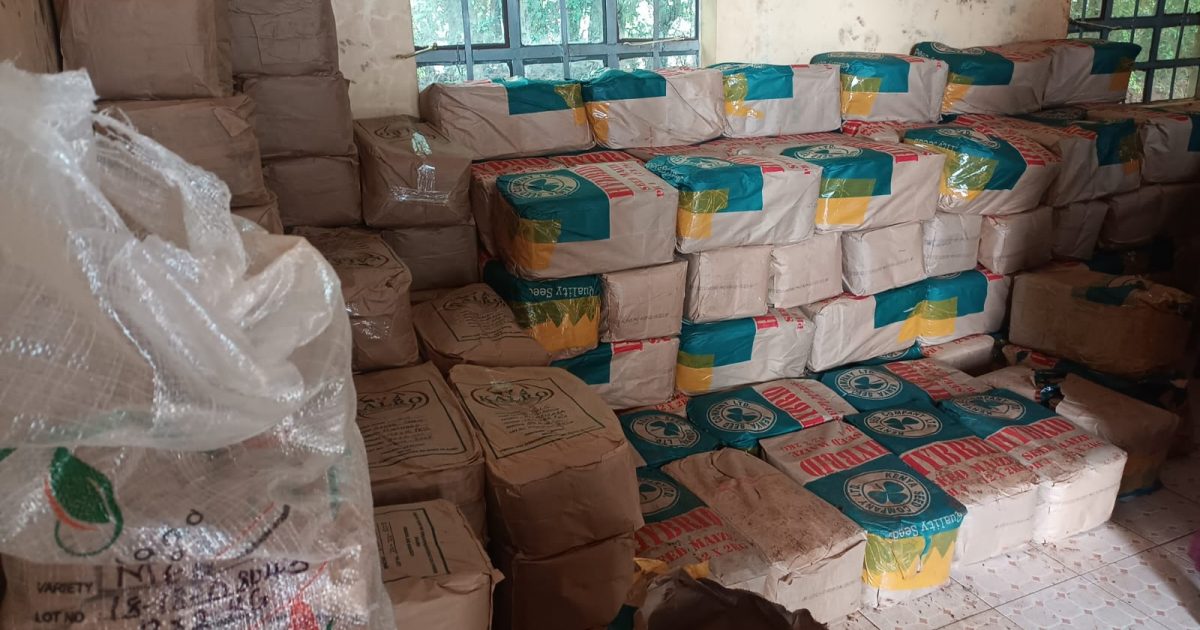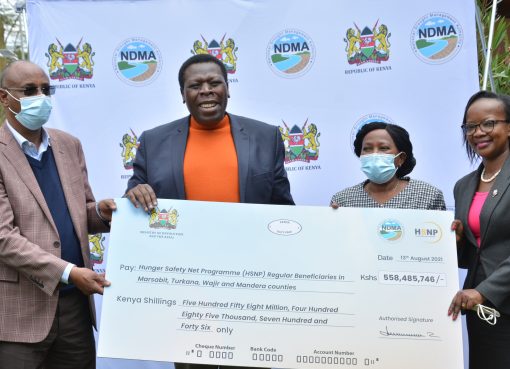Marsabit county government is assisting small scale farmers to put their arable plots under crop cultivation through provision of seeds.
The decision was arrived at after the government realized that most of the subsistence farmers who have been reeling under severe prolonged drought could not afford to buy the seed for planting in the current rain season.
County Executive Committee (CEC) Member for Agriculture Hussein Ali who officiated at the launch of the distribution exercise said that the move was aimed at boosting food production to make the community food secure and fight poverty.
Ali said that the donation which comprises fast maturing crops would benefit 1,500 farmers across the county who according to an assessment by the department were found to be deprived due to drought and famine.
“We expect this empowerment to enable the farmers to produce food for their subsistence after a long period of relying on food aid occasioned by the prolonged drought witnessed in this county,” he said.
The CEC member cautioned the beneficiaries who were selected from the department’s data bank of 2,750 farmers against temptations to sell the farm inputs saying such an act would beat the efforts being put to cushion them against the effects of drought and hunger.
The County Director for Agriculture Julius Gitu told KNA during the distribution exercise in Saku constituency that the consignment comprises 4,120 kilograms of maize seed, 2,000 kilograms of green grams, 100 kilograms of kales, 240 kilograms of cow peas and 2,000 kilograms of sorghum.
Gitu added that the seeds were obtained from the Kenya Agricultural and Livestock Research Organization (Kalro) and the Kenya Seed Company to ensure that they were certified and suited for growing in the arid and semi-arid region.
The undertaking, the director said, was expected to put 1,000 acres under food crop cultivation as he urged the beneficiaries to redouble their effort in the farms to ensure good returns.
Kalro was preferred because it is the only entity in the country that is tasked with the multiplication of fast maturing seed varieties which are suited for arid and semi-arid areas, Marsabit included.
Governor Mohamud Ali’s administration has been keen at making Marsabit residents to be food secure despite setbacks fronted by rain failure driven by climate change.
Local communities who are predominantly pastoralists have been gradually diversifying their economic activities through resilient programmes by the government and development partners.
By Sebastian Miriti




